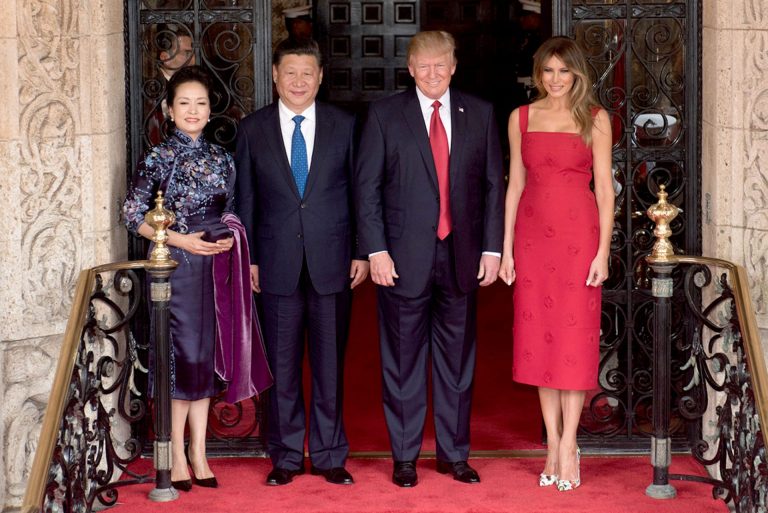U.S. President Donald Trump and U.S. Secretary of Commerce Wilbur Ross have indicated that Washington has no deadline for a trade deal with China, with the president saying that it could wait until after the 2020 election.
In London, ahead of a meeting with NATO leaders, Trump told reporters on Dec. 3: “I have no deadline, no. In some ways, I think I think it’s better to wait until after the election with China.”
Hours later, Ross expanded on Trump’s statement, telling CNBC’s “Squawk on the Street” that delaying would take “off the table something that they [Beijing] may think gives them some leverage.”
“Once the election occurs — and the president seems to be in very good shape for the election — once it occurs and he’s back in, now that’s no longer a distraction that can detract from our negotiating position,” he added.
The officials’ statements caused a decline in the stock market and weakened speculation that communist China is successfully baiting the Trump administration in chasing after a doomed agreement.
Success
You are now signed up for our newsletter
Success
Check your email to complete sign up
Trump has maintained that China, not the United States, is in more pressing need of a deal.
“They want to make a deal now, and we’ll see whether or not the deal’s going to be right; it’s got to be right,” Trump said in London.
Since 2018, the Trump administration has levied 25-percent and 10-percent tariffs on hundreds of billions of dollars’ worth of Chinese exports to the United States in a bid to get the Chinese Communist Party to agree to a broad range of economic reforms.

The United States and China have been locked in a trade war since mid-2018. (Image: Hermann Rohr / Vision Times)
The CCP regime has expressed interest in a trade deal to resolve American concerns, but maintains that some tariffs must be removed before an agreement can proceed.
China has placed counter-tariffs on American goods in response to the Trump administration’s actions.
However, China imports from U.S. suppliers are generally necessary commodities, including soybeans and other agricultural products, of which China has a natural shortage, and high-tech components that Chinese companies like Huawei rely on for their manufacturing, but cannot produce domestically.
Speaking to Fox Business in a Dec. 3 interview, Vice President Mike Pence said Trump’s negotiations with foreign countries are based on leveraging the strong U.S. economy: “What President Trump envisions with tariffs is a means to an end, and the end … is free trade.”
“The China trade deal is dependent on one thing: Do I want to make it,” Trump told reporters.
Hollowing supply chains and new tariffs
Commerce Secretary Ross believes that trade negotiations with China would be ultimately fruitful, because of the severe economic crisis facing Beijing.
In particular, Ross said that there was a “hollowing out of supply chains” between China and the rest of the world as international firms shift production to emerging industrial countries such as Vietnam, Malaysia, and Bangladesh.
“That’s a trend that is going to continue, especially as long as there’s the trade uncertainty,” Ross said.
A new round of American tariffs scheduled for Dec. 15 will take place as planned, unless Washington believes that “enough substantive progress has been made” in trade talks, Ross said.

President Trump and Commerce Secretary Wilbur Ross have indicated that Washington has no deadline for a trade deal with China. (Image: Gage Skidmore via Flickr CC BY-SA 2.0 / Department of Commerce)
Michael Pillsbury, a prominent China advisor for the Trump administration, told Fox News on Dec. 4 that the president was considering imposing new tariffs even earlier than planned.
“Something the President [Trump] has spoken about, and I favor myself,” Pillsbury said, is to “substantially increase the tariffs now before Dec. 15, and probably another increase as well to get the Chinese attention.”
Currently under discussion is a limited “phase one deal” that would increase Chinese purchases of U.S. agricultural goods, open more financial opportunities for foreign companies, and introduce intellectual property protections.
Trump has said that a deal was “close” since October, but the negotiations have encountered a series of roadblocks.
Ross said that Trump is “perfectly happy” with the current tariff regime. “The president made clear he’s under no time pressure to get it done.”
Follow us on Twitter or subscribe to our newsletter
















